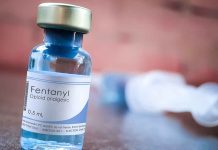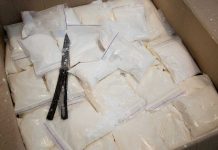
(NewsInsights.org) – In the quest to look and feel their best, many people have turned to medspas or hydration clinics. There, they undergo trendy treatments like IV infusions of vitamins, minerals, and electrolytes to help flush toxins, boost immunity, increase metabolism, and lower free radicals. Yet, experts like emergency room doctors and infectious disease physicians are reporting record numbers of patients with injuries and infections from these unregulated care facilities and treatments.
The FDA has issued warnings to consumers regarding unapproved fat-dissolving injections and using injectable products compounded by medical clinics using facilities that don’t meet minimum sanitary conditions for manufacturing, mixing, or storing medications. However, it’s not just the compounds that might present problems. Many medspas or clinics use technicians with little medical background or training to provide procedures.
The lack of medical training or supervision might result in skipped steps like adequately cleansing and disinfecting a client’s skin before placing an IV or making injections, inadequate IV or injection placement or technique, or an inability to recognize when clients need critical medical assistance. Using poor technique or compounding and mixing components for treatments in areas that aren’t sterile can introduce air-borne bacteria or fungi in IV medications that might ultimately cause infections or even death.
Unregulated fat-dissolving treatments like Lippodissolve, Aqualyx, Kabelline, and Lipo Lab have caused difficult-to-treat infections, permanent scarring, skin deformities, and cysts after injection. In a case brought to light by NBC News, Bea Amma, 24, a fitness influencer in Los Angeles, paid $800 to a luxury spa in 2021 for a series of more than 100 injections of vitamins B12 and C, and a fat-dissolving compound called deoxycholic acid in her arms, stomach, and lower back.
Less than 24 hours later, Amma was experiencing severe signs of infection with fever, dizziness, and pus pouring from every extremely painful injection site. She rushed to an ER, and doctors diagnosed her with a Mycobacterium abscessus infection, a type of bacteria distantly related to tuberculosis and leprosy. It’s possible she contracted the bacterium because technicians didn’t adequately sterilize her skin before making injections, though the Los Angeles Public Health Department investigated and determined the case was “inconclusive.”
Two years later, NBC reported that Amma was still receiving antibiotic treatment. She said every aspect of her life had changed because of the infection, and she added, “Who knows if I’ll ever be cured?”
Copyright 2024, NewsInsights.org

















